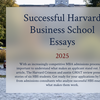"He kept me together for three years," said Vic Gatto, captain of Harvard's undefeated football team, describing a little man with a pair of magical hands that have mended thousands of torn ligaments, strained muscles and broken bones. His name is Dr. John P. Fadden or, as he is known by most, Jack Fadden, trainer.
Jack Fadden is a person most people here rarely meet. His office is the Dillon Field House Training Room, which he has occupied for the last 19 years. If he isn't helping an athlete recover from an injury, Jack is usually sitting behind his desk, in a corner, rapid-reading a newspaper or knocking out a crossword puzzle in a couple of minutes.
Rest is Rare
These moments of rest, however, are rare in Jack's life at Dillon. During football season, he frequently spends 11 hours a day in the training room and on the field helping the football team. He doesn't spend all his time with the varsity. "I feel that it is my responsibility to see any athlete who needs help and try to help him recover," he said.
"I'm satisfied with what I'm doing, and more importantly, I'm happy," he said. "I could have been helping policemen with bunions and nice little ladies with corns, but there isn't any satisfaction in that," he added.
In the training room, he could be called an athletic Sigmund Freud. He listens with an attentive ear and reaches careful prognoses with the person in mind--and when needed he has a temper that disarms most hypochondriacs and malingerers.
John Ballantyne '70, potential starting halfback on next year's football team, said, "Jack always used to say that any case he had was the strangest case he'd ever seen. This both disarmed and prodded the athlete who had the injury," Ballantyne added.
Jack Fadden was born in 1899. He was a high-spirited boy who, at times, overstepped a bit. "I always have been rebellious against authority. The truant officer was a regular visitor at our house. In fact, I may have been the original delinquent," he said.
In grammar school, Jack earned money to buy clothes, and played baseball in his spare time. He attended Bridgton Academy in Maine, earning his keep by getting up early in the morning to milk the cows and clean the stables.
At the age of 17, he decided to see the world, which for him, was the United States. He went as far west as Fargo, N. Dak., and held a variety of jobs including pitching hay and thrashing wheat.
After returning to Boston, Jack met Dr. Thomas K. Richards '15. Richards convinced him to attend Harvard College and Medical School.
Jack studied at Manter Hall and enrolled at Harvard, but quit after his sophomore year because he felt he could do more good for people as a trainer than as a cigar-chomping successful Harvard surgeon.
Later, however, Jack got a medical degree from the Beacon School of Podiatry.
Worked Wonders
With this degree and his personal attributes, he began to work his wonders at Harvard. Gatto is but one example; there were many others in the past.
Amateur athletes are not his only patients as he has also helped many professionals. "It has always thrilled me to see a fallen, injured but unbeaten athlete first get up and walk, and then run, and finally compete with the best," he said.
To honor such athletes, a group of Jack Fadden's friends established a permanent testimonial in his name in 1960. It is given to a Harvard athlete who overcomes physical adversity to make an important contribution to his team.
Richard A. St. Onge '66, Alfred D. Davis '67, and Carleton J. Goodwin '68 have been the recipients of the Jack Fadden Award in the last three years.
"These were amazing guys," Jack said. "St. Onge must have had the worst knees in the world, but he came back to star as center. Davis fractured the vertabrae in his back, most people wouldn't have been able to walk, but he came back and starred for his team. Goodwin was operated on for his ankles and his knees but he kept bouncing back and bouncing back," Jack said.
Not Money Mad
Jack has always had trouble with money--he has never wanted it. "I could have had a job paying four and five times as much as Harvard pays me, but I would never have been able to know all the great people that have passed through these doors," he said.
One University official, whom Jack had treated, tried to make him accept a gift of $50. After many attempts, Jack told the man: "If you don't stop this, I'll have you committed."
Read more in News
The Spirit of American History












